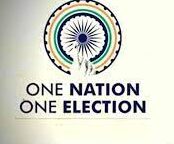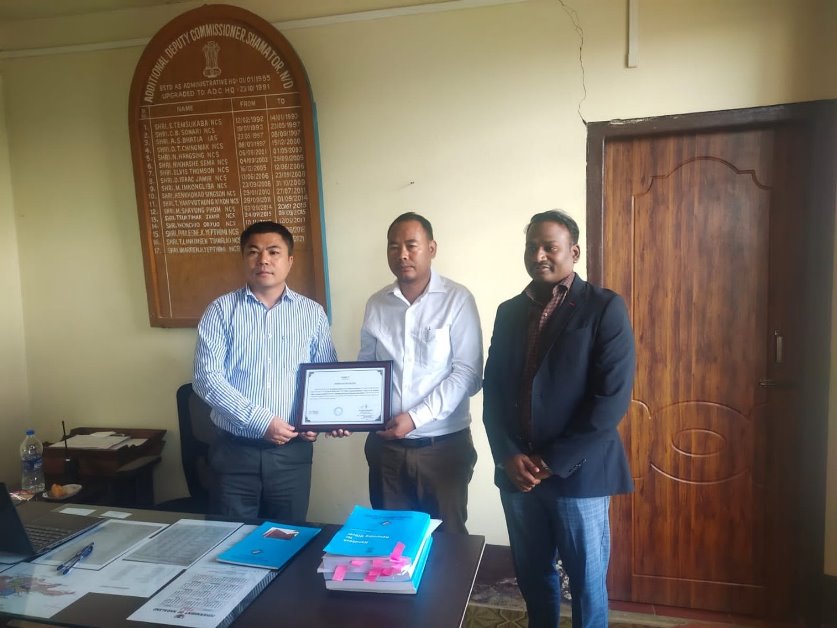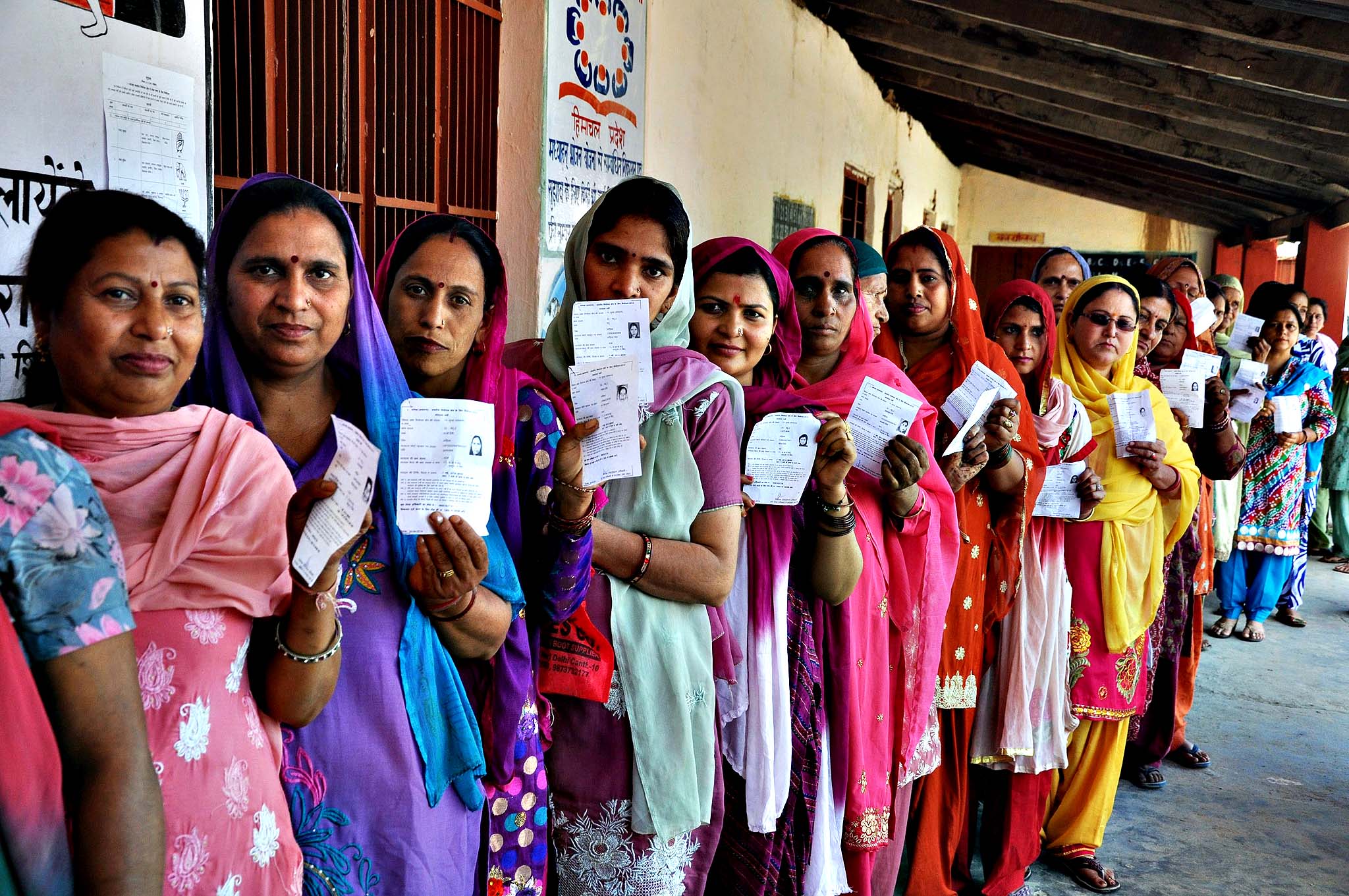The unanimous recommendation of one nation, one election in 2029 by high power committee comprising of home minister Amit Shah, former Finance Commission Chairman N.K. Singh, former Lok Sabha Secretary General Subash Kashyap, former leader of opposition in Rajya Sabha Gulam Nabi Azad and Law Minister Arjun Ram Meghwal as members led by ex-president of India Ram Nath Kovid, has become a topic of hot debate throughout the country
 KRC TIMES Desk
KRC TIMES Desk

Prof M K Bhat
The unanimous recommendation of one nation, one election in 2029 by high power committee comprising of home minister Amit Shah, former Finance Commission Chairman N.K. Singh, former Lok Sabha Secretary General Subash Kashyap, former leader of opposition in Rajya Sabha Gulam Nabi Azad and Law Minister Arjun Ram Meghwal as members led by ex-president of India Ram Nath Kovid, has become a topic of hot debate throughout the country. The committee submitted its report to the President Draupadi Murmu on March 14, 2024. There are some who favour it and at the same time there are others to oppose it. It was a part of BJP election manifesto 2019 and Congress in its election manifesto for 2024 elections has mentioned that it will reject the one nation one election idea if it comes to power.47 political parties submitted their views and suggestions before the committee out of which 32 supported simultaneous elections and 15 parties voted against it. Among the legal luminaries consulted; four former Chief Justices of India supported the move while as three High Court Chief Justices and one former Election Commissioner objected it. The committee also received 21558 responses from public and also studied the election process in south Africa, Sweden, Germany, Japan, Indonesia, Philippines and Belgium before reaching to its conclusions. The idea of simultaneous elections and single voter list has been mooted in past by Election Commission of India in (1982) and by Law Commission in (1999), Parliament Standing Committee on law and personnel ministries have also endorsed it.
It may be pointed out that certain states already vote along the Loke Sabha elections. In 2019 four states voted along the Lok Sabha elections and during Lok Sabha election 2024 states like Andhra Pradesh, Sikkim and Orissa will be voting along with the Lok Sabha elections in April -May while as Maharashtra, Haryana and Union Territory of J&K will go to elections later this year.
The protagonists believe that it will help to reduce wastage of resources, Time and economic decline. It has been estimated by CMS that union election 2019 involved a total expenditure amounted to around Rs. 60000 crore and the expenditure incurred by Election Commission amounted to Rs.10000 crore. It may be pointed out here that cost of conducting 2009 Lok Sabha elections was Rs. 1115 crore while as the cost for 2014 elections tripled to RS 3870 crore. It points to the fact that a big chunk of the national resources goes in the conduct of elections and it will be beneficial for the nation to control frivolous expenditure for the welfare of the Country.
It is no secret that there is an ever- rising use of money power in elections. RS.3377 crore was seized in election 2019 which is three times the amount seized in 2014. Most of the money used during elections is black money so, away from the control of monetary policy. This free flow of money during elections leads to inflation and makes the life of average person difficult. The expenditure will decrease by holding elections for parliament and state legislatures simultaneously. Besides this, the promulgation of moral code of conduct restricts Government to take prominent decisions and thereby arrests the economic growth of the country. The Parliament election 2024 is going to stretch for 44 days, the longest ever since 1951. There is hardly any year when elections are not held in one or the other state. The Model Code of Conduct in one state and no such thing in another state gives chances to the ruling party to manipulate the things in non- election state and project that as an example to influence the voter. This period of indecisiveness not only slows down the economy but also generates chances of corruption. The transfer of people from one place to another for conducting peaceful election also involves administrative machinery and costs. The Government remains busy in conducting elections and various administrative decisions remain unattended.
The antagonists disagree with these arguments and feel it as an attack on federal structure of the country. Regional parties feel their existence will get jeopardised by this move. They feel that it will strengthen the big parties and the regional issues will lose their weight. The national parties will sway elections because of their economic strength. The national issues will dominate the elections and regional issues will get lost in the din. The voter will be under the influence of national issues while voting. This is not true, as the vote percentage attained by BJP in 2019 elections for Lok Sabha was different from its vote percentage for the states which had gone simultaneously for elections for state legislature. In 2014 BJP got all the seven Lok Sabha seats and in less than one year AAP got 67 out of 70 legislative seats in Delhi and this was repeated by voters in 2019 Lok Sabha and 2020 State elections. It will be just underestimation of Indian voter that he will get swayed by the national trend. The matter of fact is that he is mature enough to decide his representatives for both the state and centre. His choice in last few elections has become emphatically clear. The antagonists also feel that it is unconstitutional.
History is a testimony to the fact that first four elections in 1952, 1957,1962 and 1967, to the Lok Sabha and State Assemblies were held simultaneously under the same constitution. The premature dissolution of Lok Sabha on seven occasions and the premature dissolution of legislative assemblies on various occasions lead to separate election timings. It may however be mentioned here that promulgation of one nation, one election will require amendments in five articles of constitution namely article 83 (term of Parliament), article 85 (dissolution of Lok Sabha by President), article 172 (duration of State Legislature) and article 174 (dissolution of State Legislatures) as well as article 356 (imposition of Presidents rule.) and representation of peoples act 1951.It may not be any new thing because constitution has been amended earlier too many times. The states too need to be taken in due consideration especially while addressing municipal and panchayat elections. It may require suitable amendments to article 324A to allow simultaneous elections in municipalities and panchayats, and article 325 to allow common electoral roll and voter id, both these amendments require state ratification. Presently the election commission is responsible for the election of Lok Sabha and Assembly polls while local body elections are managed by state election commissions. The committee held that election to local bodies should be held within 100 days of the Lok Sabha and legislative elections.
India shall concentrate on better use of resources for its development so, wastage of resources needs to be curtailed. The Election Commission, Government and political parties instead of doubting the political maturity of people must make more people to vote. The necessary framework needs to be developed just after Lok Sabha elections if simultaneous elections have to be practical in 2029. The political parties must rise above their personal interests to support the national interests. National interests are of paramount importance for every Indian.






